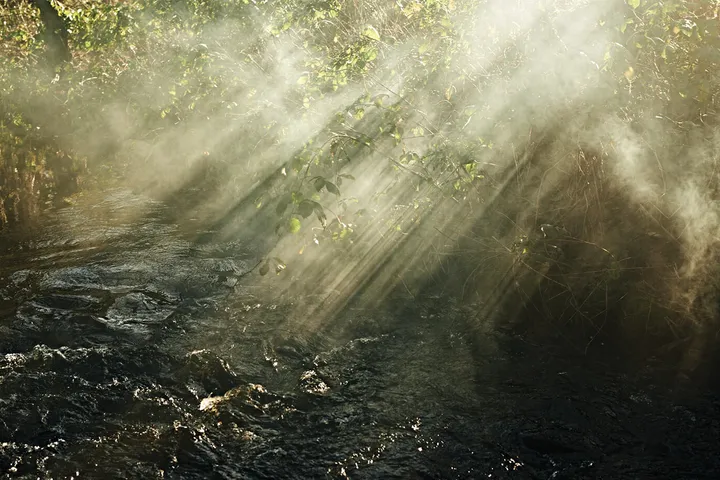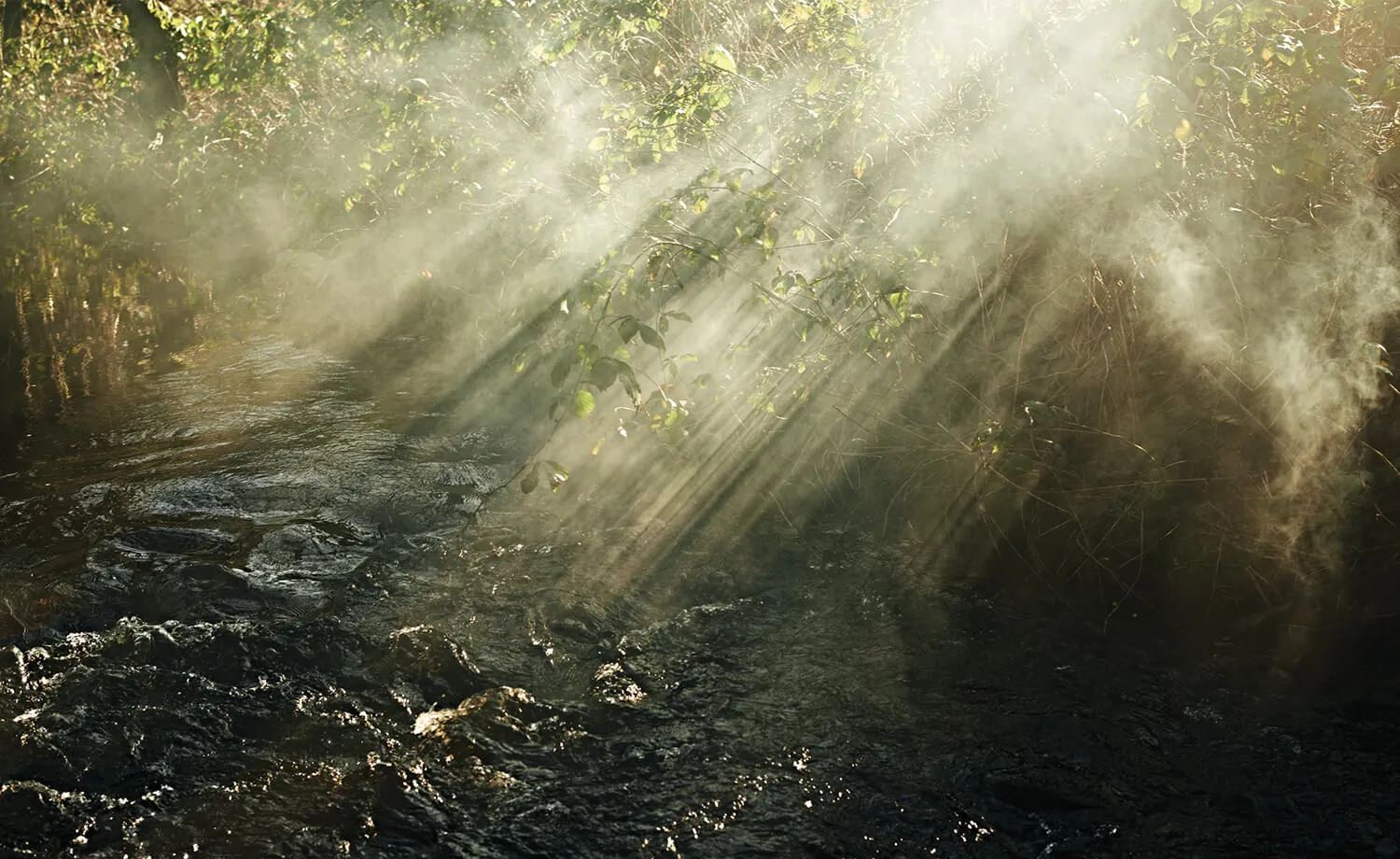The week before Easter, I planned a 48-hour solo retreat in a tiny home overlooking Washington’s Puget Sound. I was worn out after a season of service in various ministries—good pursuits that had cost me real time and energy—and I had a speaking engagement coming up that involved sharing my testimony with a group of women. The event was only weeks away, and I felt I had nothing to give.
 Illustration by Jeff Gregory
Illustration by Jeff Gregory
I have been on a solo retreat only twice in my adult life and, if I’m honest, found both times to be frustrating, at least at first. Planning, packing enough food, bringing my own books, bedding, clothing—all of the preparation—is so much effort. So when I arrived at my retreat location this spring, I just sort of collapsed with my baggage, looked around me, and thought, Now what? I’m here, God. What do You have to say to me?
Then the silence ensued. What if I heard wrong? I wondered. What if God wasn’t inviting me away from my busy life to spend time with Him? Shouldn’t I be busy working on something instead? Setting aside two days to spend alone with God might seem like a small sacrifice to some, but I worried it would be a waste of my time if nothing obvious came of it. Would people think I’m foolish, wasting my time and money?
I was more concerned with how others would view this “extravagance” than how God was seeing it, and that’s when I knew I needed to regroup. I turned off my phone, went for a walk along the water, and started breathing a little deeper. The rhythm of my breath became an expression of prayer that calmed my restless mind and heart. Once I stopped trying to control the retreat, stillness felt more natural, and silence revealed God’s presence.
Here’s what I found over the next 48 hours: There is nothing better—or scarier—than wasting time on God. In silence and reflection, unpleasant things tend to rise to the surface. Stumbling blocks like unaddressed sin, doubts, unresolved anger, and unhealed wounds that I’ve pushed down or ignored have space to make themselves known. It is also terrifying to think that nothing might happen—that God simply might not speak in a way that is noticeable. But ultimately, the retreat was better than I had hoped: I was reminded that God is active and present in my life no matter how productive I feel.
Since returning home, I have struggled to live as if that’s true. In Mere Christianity, C. S. Lewis describes the battle that often begins the moment we wake up:
All your wishes and hopes for the day rush at you like wild animals.
And the first job each morning consists simply in shoving them all back;
in listening to that other voice, taking that other point of view,
letting that other, larger, stronger, quieter life come flowing in.
But one truth has remained with me from time spent “listening to that other voice” in my tiny house by the bay: The true gift of retreat is not in going someplace else (although a different place and pace can be a profoundly helpful spiritual reset). Rather, the real benefit of retreat lies in tuning in to the presence of God that is already there, always with us. It’s a matter of turning down the noise to listen for His voice. And this, my friends, can be done anywhere—from the carpool lane, the workplace, the kitchen table, or the sickbed.
I wonder, though, how many of us don’t see our ordinary life as “sacred enough” to host the presence of the Divine. I tend to live as if God is somehow more present at church than in the aisles of the grocery store. How can God be found amid that pile of dirty dishes and an ever-growing inbox awaiting replies?
“Surely,” said Jacob after his dream of a ladder connecting heaven to earth, “The Lord is in this place, and I did not know it” (Gen. 28:16, emphasis added). Where was the “this place” to which Jacob referred? In the middle of a (probably muddy) field, next to a rock. Pretty ordinary. What if it is the regular, mundane places in our life that provide the most space for the extraordinary to occur?
I think of Mary, Martha’s sister, choosing to sit on the floor of her house at Jesus’ feet, while a frustrated Martha rushed about, serving their guests. Mary was willing to be judged and misunderstood because God’s presence mattered most to her. Her actions reflected to Jesus and all who were watching, The Lord is in this place. Does the way I spend my time say the same? There are days I’m not so sure. But maybe Mary’s “wasting” time as she practiced sitting at Jesus’ feet is what prepared her for the bigger “waste” of pouring out a whole year’s wages of perfume upon the feet of Jesus. In fact, it strikes me that what His disciples judged a “waste,” Jesus called “a beautiful thing” (Matt. 26:8; Matt. 26:10 NIV). He even declared that wherever the gospel is preached, Mary’s testimony of worshipful sacrifice would be shared, too (Matt. 26:13). Might the small minutes and hours we offer to God also prepare us for great worship—something our Father calls beautiful?
I find myself chronically running short of hours in a day, and I hesitate to spend time with God because doing so feels unquantifiable. It is hardly something that can be checked off of a to-do list. But lately, I have begun to see how communing with God in this place—wherever I may be—is an act of defiance against the world’s tendency (and mine) to prioritize productivity. Even just five minutes with God in the morning can plant a stake in the ground, reminding my spirit of my allegiance to Christ.
Giving our time to God is a risk. Some days our communion with Him will seemingly amount to nothing, and we wonder why we’re setting aside the time at all. But I suspect that even those moments are good, because nothing—not one act of devotion or tear of frustration or utterance of prayer—is wasted with God.





